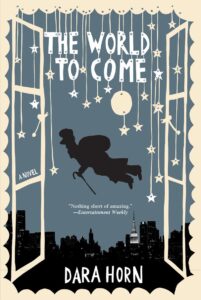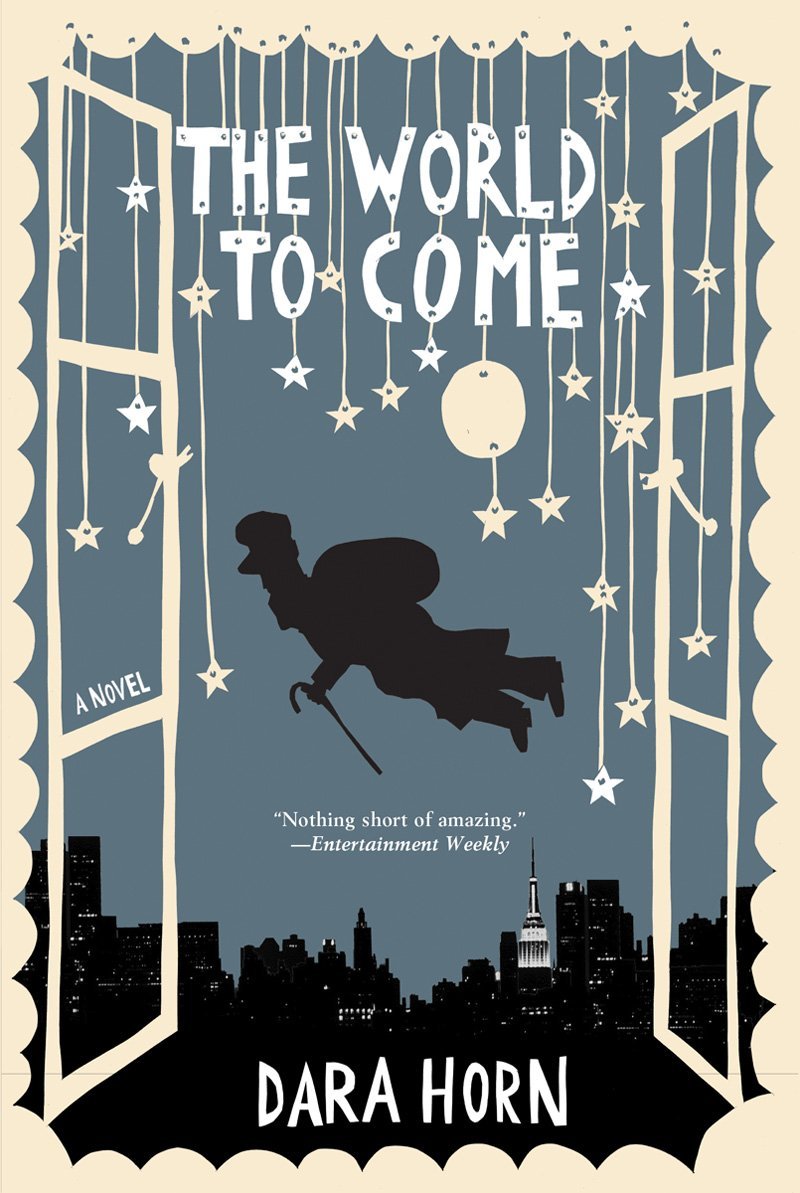
Author: Dara Horn
Publication Year: 2006
Length: 336 pages
For some reason I had this minor freak-out when starting to read this book that I had somehow missed the fine print in the online seller’s biographical data that said this was a children’s book. The cover certainly didn’t help assuage my fears. It turns out, of course, that my initial thoughts were unfounded, but throughout the novel the thought returned to me time to time. I think this general feeling always pervades my thoughts when reading these kinds of uber-Jewish books. (And, yes, I’m allowed to say that.) It’s not like Jewish in some stereotypical way, but literally steeped in Jewish mysticism and told in that kind of dreamy, fairytale way that does typify traditional Jewish stories. While the overall book has an old school feel, the storytelling is pure post-modern fanciness. Including the narrative that skips around in time and planes of reality, Horn manages to tell a compelling and emotional story about faith. I’m not talking faith in terms of the way the right wing freaks have twisted it, but faith in the sens that what you’re doing means something, faith that ultimately your suffering and struggle will not be in vain, faith in other people to do the right thing, and faith in yourself to make the right choices. This faith, in the case of our protagonist, allows him to break with fate (or what we all assume is pre-ordained) and have the wherewithal to change the course of his life. This is enacted by him stealing a Marc Chagall painting off the wall of a museum–a painting that had once belonged to his now deceased mother. It was a rash act that represented him taking back his life, which had been ripped from him by death, divorce and his own genius mind. The author does a good job of actually presenting a story here, putting together a giant puzzle of the past and present to solve a mystery of sorts (at the center of which is the Chagall painting), while still mixing in quite a bit of thought-provoking high-mindedness. Her style is not completely unlike her fellow Jewish mystics, Jonathan Safran Foer and Michael Chabon, in its tone and mixture of flashbacks, tradition and general Kabala earmarks. The story does go a bit haywire at the end, moving completely away from the narrative and into an other-worldly aside that felt a bit more like an afterward than anything else. Like Spielberg’s A.I., which I also liked very much (and must mention every third review), there seemed to be a perfect place for a dramatic and decent ending, but she just had to get that last part in there. I imagine this thing is a staple in coffee klatch book clubs through out the Tri-State area. And if it isn’t, for shame.


